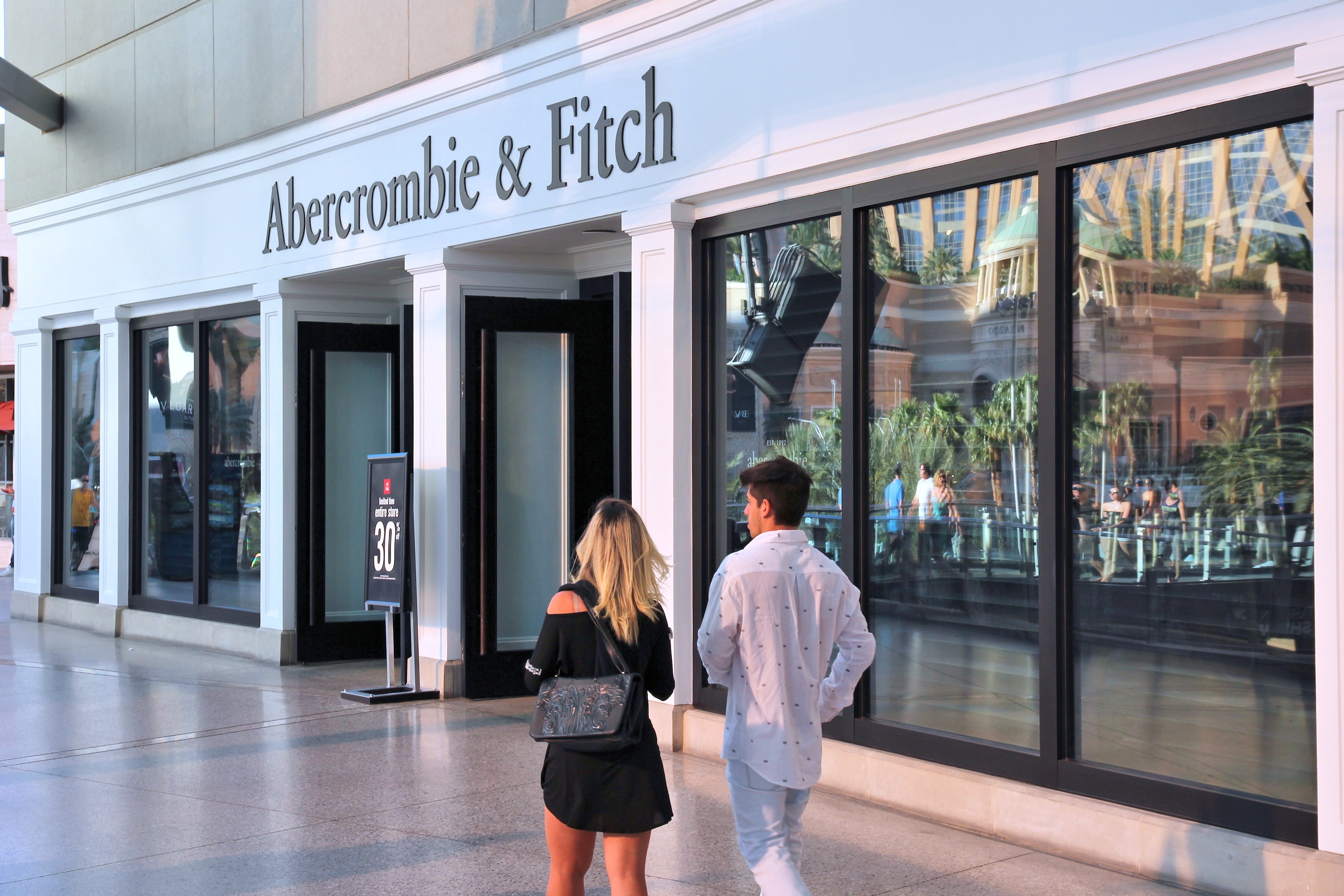The Independent's journalism is supported by our readers. When you purchase through links on our site, we may earn commission.
Abercrombie & Fitch is back – but has it learned its lesson?
Does this comeback mean a revival of Noughties fatphobia, or will Gen Z manage to do away with size zero obsession that fuelled the eating disorders of young women like me once and for all?


Your support helps us to tell the story
From reproductive rights to climate change to Big Tech, The Independent is on the ground when the story is developing. Whether it's investigating the financials of Elon Musk's pro-Trump PAC or producing our latest documentary, 'The A Word', which shines a light on the American women fighting for reproductive rights, we know how important it is to parse out the facts from the messaging.
At such a critical moment in US history, we need reporters on the ground. Your donation allows us to keep sending journalists to speak to both sides of the story.
The Independent is trusted by Americans across the entire political spectrum. And unlike many other quality news outlets, we choose not to lock Americans out of our reporting and analysis with paywalls. We believe quality journalism should be available to everyone, paid for by those who can afford it.
Your support makes all the difference.It was October 2009. I was 15, the eating disorder I would suffer from for the better part of a decade was in its early stages, and Abercrombie & Fitch had just opened its first Italian store in my hometown, Milan.
In those first few weeks, you’d see lines stretching all around the block; hundreds of teenagers queuing for hours just to get a glimpse of the shirtless male “models” at the front door, hormones racing, basking in the overwhelming cologne scent and the knowledge that you, too, could be special. If you shopped at Abercrombie & Fitch in the 2000s, you truly felt like you were.
A new Netflix documentary, White Hot: The Rise & Fall of Abercrombie & Fitch, details how the brand managed to elevate itself to iconic status and how its alleged toxicity ultimately destroyed it – or did it?
Abercrombie’s marketing was elitist and aggressive, with faceless torsos and washboard abs winking at you from billboards and shopping bags, expensive price points, and a preppy all-American look that every kid on both sides of the Atlantic aspired to.
In Milan, sporting their moose logo was an unspoken requirement to fitting in – and no matter how hard I tried, I just couldn’t. Fit into their size 00, that is.
A fun thing that happens when an eating disorder takes over your life is that your world suddenly revolves around two things: calories and sizes. For all my obsession with numbers, my constant, delirious hunger, and my one deranged goal of looking like the stars of the time – Paris Hilton, Keira Knightley, Mischa Barton, all hip bones and legs – I owned one pair of white Abercrombie shorts and I probably managed to button them up twice. I felt like an outcast, like I didn’t belong. If all my friends wore Abercrombie & Fitch, why couldn’t I?
As the documentary alleges, all of it was intentional. In 2006, former Abercrombie CEO Mike Jeffries said: “In every school there are the cool and popular kids, and then there are the not-so-cool kids. We go after the cool kids. A lot of people don’t belong [in our clothes], and they can’t belong. Are we exclusionary? Absolutely.”
And if you weren’t sure what the term cool kids referred to, writer Robin Lewis expanded on Jeffries’ brand politics in a 2013 Business Insider piece. “He doesn’t want larger people shopping in his store, he wants thin and beautiful people,” Lewis explained. “He doesn’t want his core customers to see people who aren’t as hot as them wearing his clothing.”
In those years, the association of thin with beautiful – as well as white and able-bodied – was pervasive and unchallenged within wider culture. From Nineties “heroin chic” to Victoria’s Secret shows that were still going strong until a couple of years ago, the exclusionary mentality that made Abercrombie the staple of cool only started to let up very recently.
And now that we’ve marginally evolved in the direction of inclusivity and diversity, Y2K fashion is back and more zeitgeist-y than ever, with low rise jeans, wraparound sunglasses, baby tees and even Ugg boots blowing up on TikTok and gracing the Instagram feeds of trendsetters like Bella Hadid and Dua Lipa.
But does this comeback necessarily mean a revival of Noughties fatphobia, or will Gen Z manage to succeed where my generation failed and do away with size zero obsession once and for all?
To keep up to speed with all the latest opinions and comment, sign up to our free weekly Voices Dispatches newsletter by clicking here
Sure, the body positivity movement has done an incredible job of pushing designers and retailers to embrace curvier models, but it hasn’t been long enough since culture caught on to know whether this will be a temporary or permanent trend. And for all the talk of inclusivity, not a single plus-size model walked in the Miu Miu show that marked the start of miniskirt mania, 2022’s biggest fashion trend.
After his 2013 change.org petition garnered nearly 80,000 signatures, ED survivor Benjamin O’Keefe pressured Abercrombie to expand their offering to sizes XL and above. O’Keefe features prominently in the Netflix documentary and tells the story of how, as a result of the petition going viral, he got the chance to sit down with A&F senior staff and National Eating Disorders Association CEO Lynn Grefe, to discuss the brand’s blind spots. “Whether you can fit into Abercrombie or not, you are beautiful and you do belong!” O’Keefe wrote.“It’s time Abercrombie & Fitch embrace that beauty.”
To their credit, they did. Jeffries stepped down as CEO in 2014, and a subsequent rebrand took the label from struggling back to stylish: with plus-size and diverse models and Pride-themed tees, hashtags #abercrombiehaul and #abercrombiestyle get millions of organic views on TikTok. Their sales were up 20 per cent in 2021.
The cynic in me is convinced there’s more performance than bite to their newfound wokeness, but they are back in the graces of younger generations, and that’s all that matters.
So, Gen Z, I beg you: bring back all the Noughties trends your heart desires, but leave the fatphobia that ruined my teenage years in the past, where it belongs.
Join our commenting forum
Join thought-provoking conversations, follow other Independent readers and see their replies
Comments